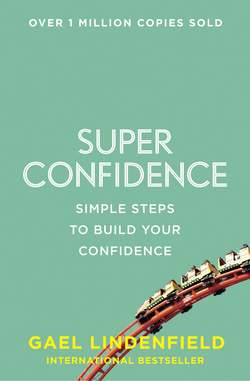Читать книгу Super Confidence: Simple Steps to Build Your Confidence - Gael Lindenfield, Gael Lindenfield - Страница 33
WHAT ARE MY VALUES?
Оглавление| They call him ‘Jigsaw’ because every time he’s faced with a problem he goes to pieces. Anon |
Perhaps one of the greatest telltale signs of lack of inner confidence is a persistent difficulty in making decisions. Sometimes this difficulty is very explicitly portrayed through typically anxious and procrastinating behaviour, but it can also take the opposite form. Often people will make decisions too quickly, because they are keen to take the familiar, safe road, which means they have, in effect, avoided making any real decision.
Whatever the ‘symptom’, the cause of persistent difficulties in making decisions, almost certainly has something to do with the person not being very sure about their values.
In order to feel strong in ourselves, we need to have our own personal set of ‘commandments’ or ‘rules’ according to which we generally lead our lives. We may choose to review and adapt these constantly as we change and our lives change, but we should always be aware of the basic framework within which we are operating.
When people first start to do personal development work, they are often shocked when they become aware of how muddled their own philosophy of life is. They realize that they have unconsciously taken on board a hotchpotch of values from their mothers, fathers, teachers, church leaders, politicians, bosses, husbands, friends and other significant people in their lives. Often these values are at war with one another. We have all experienced, to a greater or lesser degree, the debilitating effects of this kind of interminable inner battle:
| I don’t think I should really say anything to him but I know that I ought to . . . Perhaps, if I did, he would think I was stupid, but if I didn’t, she would think I was silly. Maybe I should just do what Mary suggests, but on the other hand Joan never does it that way. It says in this book that we ought always to be like this but it says in this other one that we ought to be like that . . . |
| If we want to feel truly confident, we must break the habit of trying to please all people, all of the time! |
When we find ourselves persistently thinking like this, we are being controlled by fear – a fear which is almost certainly rooted in a deep-seated terror of rejection. The price which we know that we often have to pay for having a clear value system of our own is that some people may not like our ideas and behaviour and may not want to be with us – that’s the reality. The frightening fantasy is that no one will want to know us!
I have purposely used the word ‘habit’ because it is important to remember that this behaviour is learned behaviour and therefore it can be unlearned. It was probably learned in childhood, at an age when we were too young to risk rejection, a time when we really needed the rewards we earned through being the kind of children our parents and teachers wanted us to be.
Fortunately the world at large seems to be able to contain an infinite number of people with differing philosophies, but often those who lack confidence have lived a ‘sheltered’ life and their personal world may be very small and limited in its potential. Once we feel secure and confident about our own values, we are in a stronger position to expand our horizons. We will begin to look for – and find – people who are less likely to reject us, people who either share our own values or who are secure enough in themselves to be able to respect differences in others.
